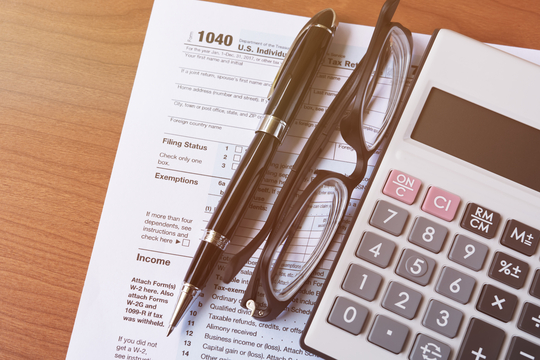In the tax world, excise taxes are often the neglected step-child. They take a back seat to income and estate taxes. They do not make the headlines very often.
Excise taxes are largely transaction-based taxes that target specific industries or activities. The businesses that are subject to these taxes generally just pay them, and consider it a cost of doing business.
But the law and rules for these taxes are often not well developed and they can be very difficult to apply in practice. This can be problematic as a misstep with these taxes can be financially devastating for a business. It often spells the end for the business, or, at a minimum, a need to resolve a significant tax balance with the IRS.
The recent case of Texas Truck Parts & Tire, Inc. v. United States, No. 23-20588.(5th Cir. Oct. 8, 2024) provides an opportunity to consider the ill-defined tire import excise tax. This case resulted in a significant tax liability and expanded definition of who qualifies as an “importer” for this tax–which could be extremely problematic for businesses that import tires for sale in the United States.
Facts & Procedural History
The taxpayer (“Texas Truck”) is a wholesaler and retailer of truck parts and tires based in Houston, Texas.
From 2012 to 2017, Texas Truck purchased tires from Chinese manufacturers, which shipped and delivered the tires to Houston. Texas Truck believed that the Chinese manufacturers were the importers of the tires under applicable law and therefore did not file quarterly excise tax returns or pay any excise tax on the tires.
The IRS audited Texas Truck and determined that it, not the Chinese manufacturers, was the importer of the tires and therefore owed approximately $1.9 million in taxes. Texas Truck paid a portion of these taxes and filed an administrative claim for a refund. After the IRS failed to act on the claim, Texas Truck filed suit seeking a refund.
The district court determined on summary judgment that the Chinese manufacturers imported the tires and were therefore liable for the tax. The Government appealed to the Fifth Circuit, which resulted in the current court opinion.
About Excise Taxes on Imported Tires
Section 4071 imposes tax liability on manufacturers, producers, or importers of taxable tires for their sale. The “or” in the code means that the tax could be imposed on any one of these parties.
This leaves one wondering who qualifies as a manufacturer, producer, or importer? The implementing regulations provide definitions of these terms. As relevant to this case, the regulations define an “importer” as any person who “brings” a taxable article into the United States from a source outside the United States, or who withdraws such an article from a customs-bonded warehouse for sale or use in the United States. These rules are found in Treas. Reg. § 48.0-2(a)(4)(i).
The regulations go on to provide an exception for nominal importers. The regulations say that the beneficial owner, not the nominal importer, is liable for the excise tax. The regulations use the example of a broker who ships an item for the ultimate owner, saying that the owner and not the broker should be liable for the excise tax. As we’ll see below, it is not easy to square the “brings” rule with this exception for nominal importers.
As a side note, astute readers may note that the “sale” is what triggers the tax, not the act of importing the tires. They might wonder if this excise tax could be avoided by having an integrated foreign manufacturer-U.S. sales company so there is no “sale.” The statute addresses this. It says that if a manufacturer, producer, or importer delivers tires to its own store or outlet, it is liable for the excise tax in the same manner as if it had been sold when delivered. Thus, for an integrated manufacturer-sales company, the excise tax is essentially triggered on delivery to the United States.
Who “Brings” in the Taxable Item into the United States?
This tax dispute focused on who “brings” the taxable item into the United States as defined in the regulations. This is important as the regulation clearly says that the party who “brings” the taxable item into the United States is liable for the excise tax.
Let’s start with the IRS’s position. The IRS argued that the term “brings” means causing or making something come from abroad. Under this broad definition, any United States business that ordered tires manufactured abroad would be subject to the tax, regardless of who physically transported the tires into the country. This interpretation would cast a wide net.
The district court did not accept this broad definition. It concluded that the Chinese manufacturers were the parties who brought the tires into the United States, as they physically made the delivery. This interpretation aligns with a common-sense understanding of the word “brings”–i.e., the party that physically transports an item from one place to another.
On appeal, the Fifth Circuit agreed with the district court’s narrower interpretation of “brings.” The Chinese manufacturer was the party that brought the tires to the United States. However, the appeals court concluded that the focus should have been on the other language in the regulations regarding “nominal importer” and “beneficial owner” and that these terms basically overrule the language about who “brings” the tires into the United States.
Who is a Nominal Importer vs. Beneficial Owner?
Okay, so if we ignore who “brings” the tires to the United States, who is a “nominal importer” and who is a “beneficial owner?” These are concepts that are often used with trusts, and even foreign FBAR reporting obligations. The regulations provide a starting point.
A “nominal importer” is an entity that appears to be the importer on paper or in form, but doesn’t have the substantive benefits or risks associated with importing. In this case, the Chinese manufacturers were considered nominal importers because they merely handled the logistics of shipping the tires to the United States on Texas Truck’s behalf.
The “beneficial owner,” on the other hand, is the entity that derives the real economic benefit from the importation. The Fifth Circuit, drawing on previous case law and IRS rulings, defined the beneficial owner as the party who is “the inducing and efficient cause of the importation.”
In applying these concepts, the appeals court considered several factors:
Who initiated the order: Texas Truck placed specific orders with the Chinese manufacturers.
Who benefited from the importation: Texas Truck received the tires for resale in the U.S. market.
The nature of the transaction: The Chinese manufacturers didn’t import tires speculatively to sell in the U.S.; they shipped tires in response to Texas Truck’s orders.
The intent of the parties: The arrangement was set up for Texas Truck to receive tires for its business, not for the Chinese manufacturers to establish a U.S. presence.
The Fifth Circuit concluded that Texas Truck was the beneficial owner of the tires. Even though Texas Truck didn’t physically bring the tires into the country, it was “the inducing and efficient cause” of their importation. The Chinese manufacturers, while technically bringing the tires into the U.S., were merely acting as agents facilitating the transaction.
The Takeaway
Businesses importing tires for sale in the United States, particularly those in Texas and other states within the Fifth Circuit’s jurisdiction, should carefully review their importing practices in light of this decision. They may need to reassess their potential excise tax liabilities and ensure they are properly reporting and paying any applicable taxes. Factors such as who initiates the order, who benefits from the importation, and how the sales process is structured can all impact the determination of who is the “importer” for tax purposes. This interpretation may result in taxpayers needing to restructure their business or having to consider filing excise tax returns for the first time or amended returns to seek refunds.
Watch Our Free On-Demand Webinar
In 40 minutes, we’ll teach you how to survive an IRS audit.
We’ll explain how the IRS conducts audits and how to manage and close the audit.




























